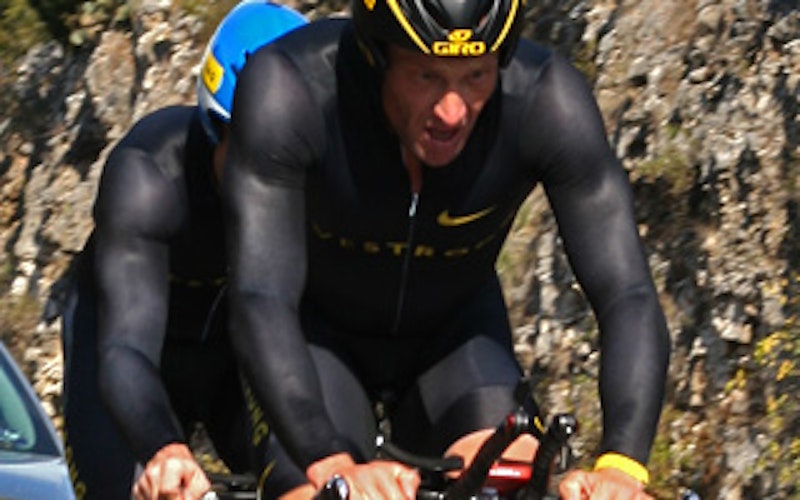
Culture At Large
Lance Armstrong and faith in athletic greatness
I never wanted to believe Barry Bonds, but I always wanted to believe Lance Armstrong.
Armstrong was not just a sports hero. He seemed to redefine the limits of the human body. Armstrong overcame testicular cancer to win the Tour de France bicycling championship - arguably the most grueling event in all of sports - an unheard-of seven times in a row. The French press was always asserting that Armstrong used steroids, but he never failed a drug test. For a while, that was good enough for me.
But when a teammate of Armstrong came forward recently to confess to "60 Minutes" that he saw Armstrong inject illegal substances and heard about Armstrong covering up a positive steroid test, the charges swept the sports world and turned the tide against him. Lance fans have dismissed so many steroid allegations, but this one couldn't be brushed aside so easily. Our hero became our villain.
I wondered why I and so many invested so much into our admiration for Armstrong, and I started thinking about ancient Greece.
In that time and place, sports were liturgical - they were worship. The ancient Olympic Games were founded at Olympia because that was the home of the temple of Zeus. Olympic ceremonies included offerings to Zeus, and it was hard to tell where the temple ended and the sports stadium began - because that was the point. (After centuries, the ancient Olympics were cancelled because they were non-Christian, as part of an anti-paganism campaign of one of the first Christian emperors.)
Why were sports considered worship? In part because a big ritualized festival with people from around the empire was a natural way to honor a god. But beyond that, the Greeks revered the human body so much, they thought that to see it performing at its athletic peak, they were getting a very glimpse of the movements of the gods. Look at that athlete jumping through the air or dashing past all others - that's almost god-like. (In fact, they didn't want anything to obscure the view, so they made all athletes compete in the nude.)
I think little has changed in how we revere athletes today. Sporting events may not seem like worship anymore, but in a way that's what they are. And we still look to athletes to give us glimpses of the human body defying its own limits, glimpses of the greatness of the human form. I looked at a human body that could beat cancer and then win seven bicycling marathons and I thought, that's almost god-like.
This can be good or bad. We can look at our athletes and marvel at their creator and what he made these intricate machines capable of doing. We can also look at them with the temptation of Eden - maybe humans, too, can rise in the cosmic pecking order and be like gods. In a confusing world, we probably do both.
(Photo courtesy of Daniel Norton/Wikimedia Commons.)
Topics: Culture At Large, Arts & Leisure, Sports, News & Politics, North America